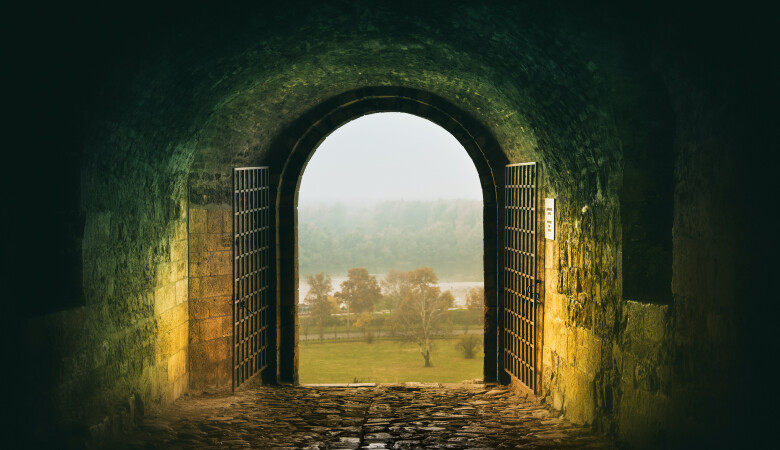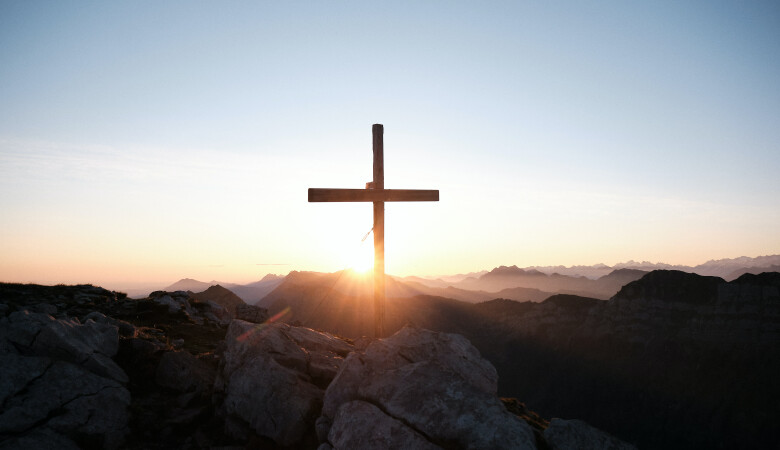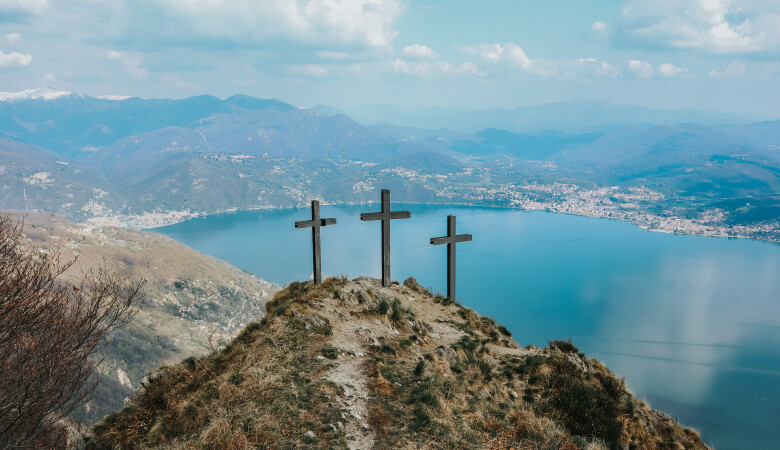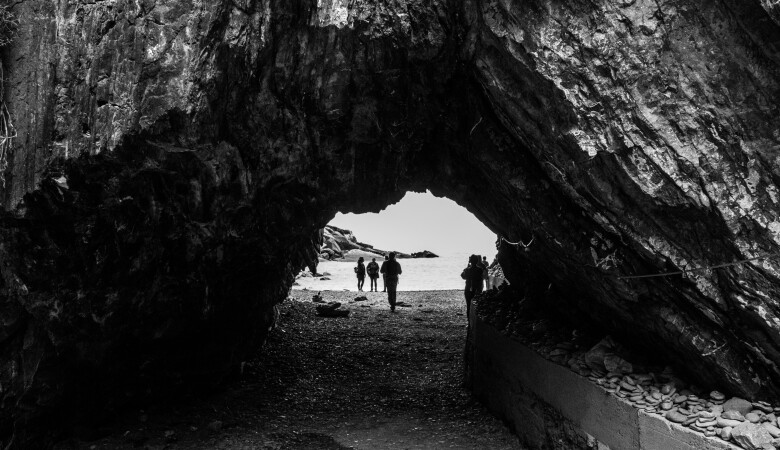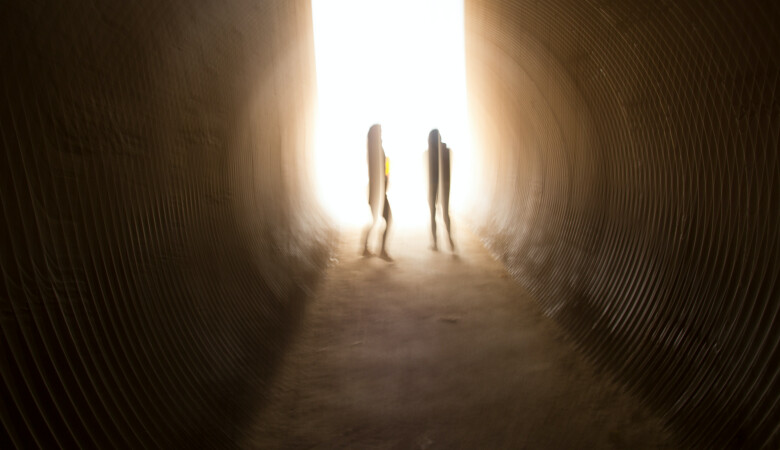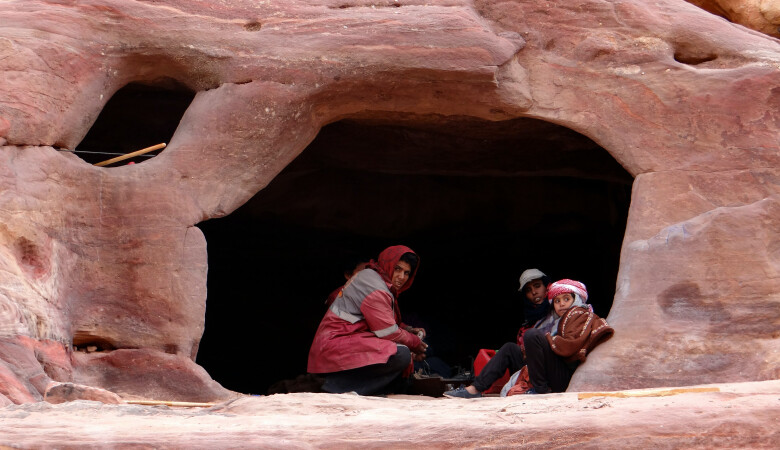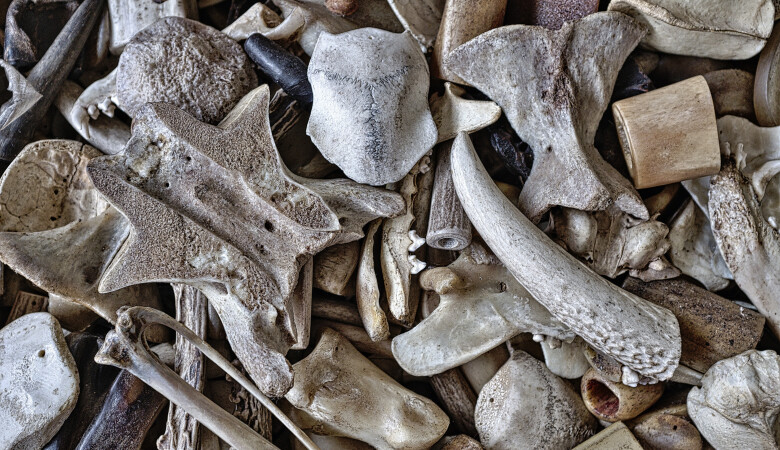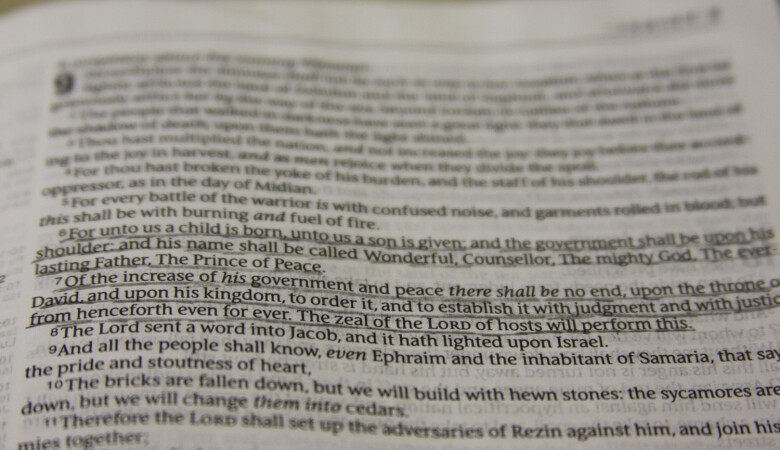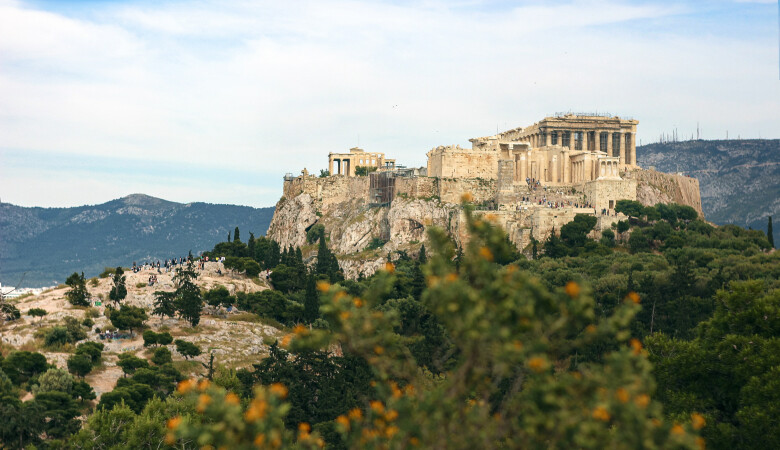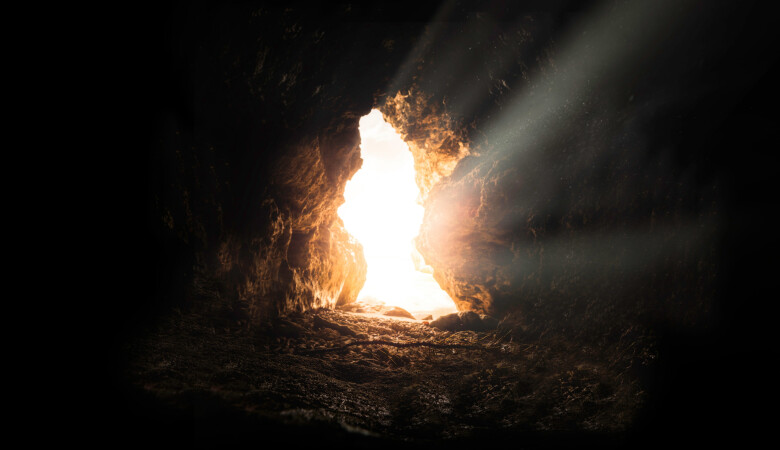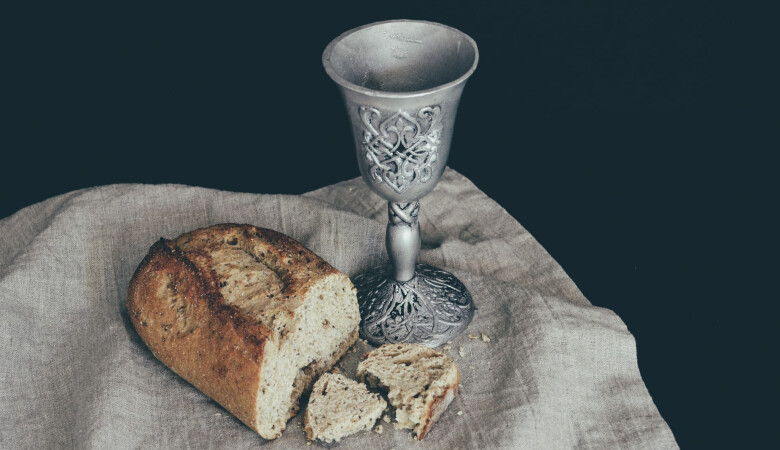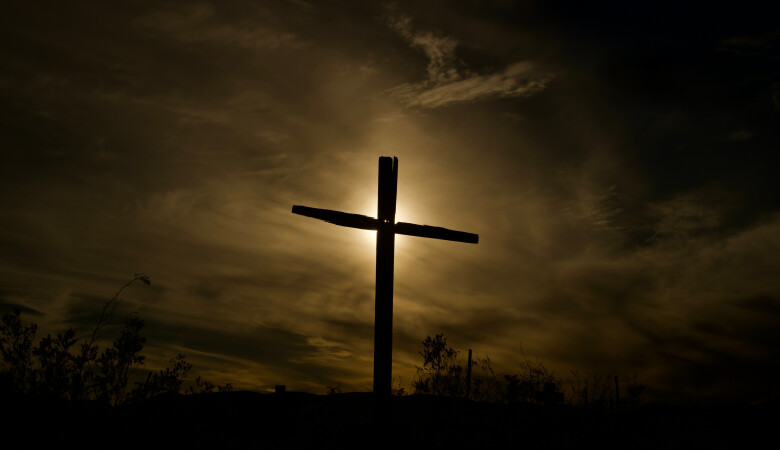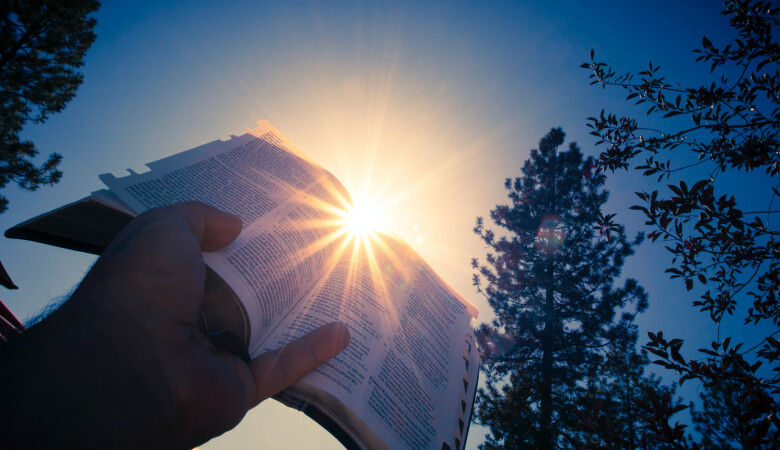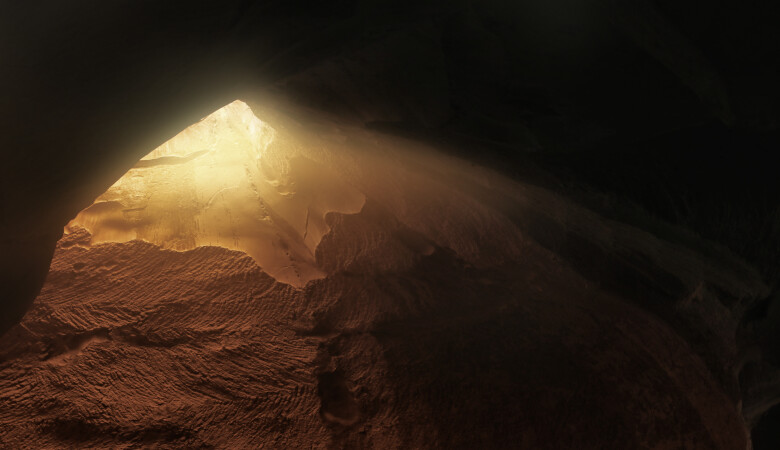Series: Easter Sermons
The Resurrection: Continuity and Transformation
March 31, 2024 | Andy Davis
1 Corinthians 15:35-38
Redemption, Resurrection of Christ
This Easter sermon uses a spring analogy to demonstrate that Christ’s resurrection is a pattern for all Christians that we will certainly follow
- SERMON TRANSCRIPT-
I. The Seasons Preach; The Word Preaches Better
I believe that spring is the perfect time to celebrate the resurrection of Jesus Christ. God uses the unfolding seasons to proclaim truth to every inhabit of the earth. We know this because Romans 1 tells us that God's invisible qualities, His eternal power and divine nature are clearly seen being understood from what has been made. God communicates His invisible attributes, His nature, and I believe even His purposes in creation.
Consider the unfolding seasons. Take summer for example, we see God's lavish nature, His generosity as He opens His hand and satisfies the desires of billions of living creatures all over the earth. The beasts of the field feed on the sweet green grass growing plentifully beneath their feet. In the summer we see lush meadows. We see beautiful wild flowers growing everywhere. We hear the noise of bubbling streams. We hear the songs of innumerable and different species of birds. We feed on the sweetest of summer fruits, strawberries, peaches, melons. That's summer.
But then autumn comes. The season changes, the weather gets cooler, the skies get vividly, bright blue and then they get darker. Harvest time draws near, the last chance to collect food before there's nothing available to collect. The birds overhead are migrating, knowing they can't stay here. Winter is coming. The spectacular colors of fall foliage on leaves that will soon flutter to the earth and die reminds us that all glory, all physical glory here is fleeting and temporary, soon to sink back into the earth from which it came.
And then comes winter. God speaks a word of cold judgment, of sterile death, long dark nights, winter blasts, nothing growing, no color on the earth, just frozen water, snow, ice, silence. Picture walking through a snowy forest in the winter, you stop and listen and you hear thick, eerie silence, muffled stillness, really a picture of death.
But then comes spring. And what does God speak here in my mind as a Christian, but resurrection from the dead. Flower buds on trees ready to burst forth. You got subterranean tulip bulbs ready to emerge from recently hardened snow-covered ground to display radiant and colored life. The warm breezes, delightful fragrances of spring in the air. I especially love budding trees and their different colors. The birds have returned and they chatter and they begin to resume their energetic lives. All of these whisper to the world of a yearning for resurrection from the dead.
However, the bodily resurrection from the dead of human beings from the grave must be a specifically revealed truth, revealed in the pages of Scripture not gleaned from nature. For it seems nature speaks ardently against it. The seasons preach, but the Word preaches better.
"The bodily resurrection from the dead of human beings from the grave must be a specifically revealed truth, revealed in the pages of Scripture not gleaned from nature. For it seems nature speaks ardently against it. The seasons preach, but the Word preaches better."
Turn in your Bibles to 1 Corinthians 15. We’re going to walk through some portions of this great chapter. Resurrection from the dead is proclaimed truth, it's revealed in the pages of scripture. The doctrine of the resurrection from the dead is a Christian doctrine. Other religions of the world do not teach it. The Greek philosophies that Paul was battling there in ancient Corinth and earlier in ancient Athens respected the idea generally of the immortality of the soul, but they openly mocked Paul on Mars Hill when he spoke of the resurrection from the dead.
That's why Paul wrote this great resurrection chapter in 1 Corinthians 15. He is refuting people who are steeped in Greek philosophy, who are saying first that resurrection from the dead is impossible and secondly, that it's undesirable. He begins with the central fact concerning the bodily resurrection from the dead, that Christ is risen. Christ's resurrection is central to the Christian gospel. Look at verses 1 and 2 in this chapter, 1 Corinthians 15, "Now brothers I want to remind you of the gospel I preached to you, which you received and on which you have taken your stand. By this gospel you are saved if you hold firmly to the word I preach to you. Otherwise, you have believed in vain."
Christ's death and resurrection are both in fulfillment of prophetic scripture. Look at verse 3 and 4, "For what I received, I passed on to you as a first importance that Christ died for our sins according to the scriptures and that he was buried and that he was raised on the third day according to the scriptures."
Paul then goes on to talk about eyewitness proof of the resurrection. Christ appeared first to Peter and then He appeared to the twelve, and then He appeared to more than five hundred eyewitnesses. Paul says most of whom were still alive at the time when he was writing that chapter. They could be summoned to testify to what they saw, eyewitness testimony to the resurrection. Then Christ appeared to James, his biological brother and then again to all the apostles. Then last of all, after a delay of time, to Paul himself. Now these eyewitnesses are effectively summoned here in this chapter by Paul's writings to prove that Christ has risen from the dead. Resurrection from the dead is not only possible, it has happened.
Then he addresses the main problem in verse 12, the reason he's writing the chapter, "But if it is preached to Christ has been raised from the dead, how can some of you say that there is no resurrection from the dead?" That's the key clue on why he's writing this chapter, there were people saying that to them it seemed impossible, actually absurd. That's what I meant when I said nature is against resurrection. Yes, the spring testifies to life from seemingly dead things, and Paul is going to use this analogy in the verses in this chapter I'm going to focus on for this sermon, verses 35-38, of seeds that fall down into the ground and die and then produce life.
But specific human beings die and you never see them again. There are absolutely no exceptions, everyone dies. The rich and poor alike, old and young alike, powerful and weak alike, famous and obscure alike. Death seems absolutely unbeatable. All the pharmaceutical research and medical technologies and genetic insights and tailor-made therapies, miracles of modern science, cannot defeat death. They just stave it off temporarily. It's irreversible, once that specific loved one is gone, that person never returns ever.
Paul was asked to address this basic concern, death the final enemy, and he faces their false doctrine head on. If resurrection from the dead actually were impossible, then Christ himself has not been raised, and if Christ has not been raised, your faith is worthless. We are all still in our sins. We have no way to be forgiven by a holy God. Paul and all Christian apostles and evangelists and missionaries and pastors and teachers and roommates and friends and neighbors that tell you these things are liars. Everyone that has died, they're gone. You will never see them again. Death still reigns, the merciless vicious tyrant it has always been, and Christ is actually no savior at all.
Now like Paul, I can't go on long in that vein, that tone, because in verse 20, "But Christ has been raised from the dead." Hallelujah. He's already stated this at the beginning of the chapter, but it's like he can't say it enough. He said it when he first came to Corinth, when he was there in weakness and fear and much trembling, preaching Christ and him crucified. But he didn't just preach Christ and him crucified, he also preached Christ and him resurrected. He preached that simple and clear message. Almighty God sent His son, His only-begotten son; through the Virgin Mary took on a human body. He lived a physical life tempted in all ways just as we are yet was without sin. He did stunning miracles, amazing miracles. He taught amazing teachings, but especially He died in our place on the cross as an atonement for our sins.
And on the third day, God raised Him from the dead. Through faith in Jesus Christ, that simple message I've just proclaimed, all of our sins are forgiven and that we ourselves will receive the benefit of Christ's resurrection from the dead. That's why we're singing and so excited and celebrating. It's not just some historical fact, we believe we're singing about our own future this morning. As Jesus said in John 11, "I am the resurrection in the life. He who believes in me will live, even though he dies and whoever lives and believes in me will never die.” Paul in this great resurrection chapter says Christ's resurrection is a pattern for all Christians that we will certainly follow. Look again at verse 20, “but Christ has indeed been raised from the dead, the first fruits of those who have fallen asleep.” The first fruits is speaking of a vast harvest yet to come. We are in that harvest if we believe in Jesus.
All of this makes up the basic good news which Christians all over the world are celebrating today. It is not my purpose to walk verse by verse through this entire chapter, though nothing would please me more. But I'm telling you the sermons already quite long. I tried to shorten it, friends, but get ready, we're going to be here a while. This morning's text is verse 35 through 38, "But someone may ask, 'How are the dead raised? With what kind of body will they come?' How foolish. What you sow does not come to life unless it dies. When you sow, you do not plant the body that will be but just a seed, perhaps a weed or something else. But God gives it a body as he has determined and to each kind of seed, he gives its own body."
Paul is addressing objections to the doctrine of resurrection based on the immense practical difficulties of resurrection from the dead. Specifically, how could it happen? What kind of body would we have if we're going to be raised from the dead? It's interesting in verse 36, he answers with a rebuke, "How foolish." It's one of the stranger moments in the chapter, especially because he goes on to answer the question that he rebukes. Why does he say this? Why does he say, "How foolish"? I think it's for this reason. He's addressing the foolishness of a person who thinks that the God who created the universe by the word of His power and sustains it every moment of its existence by the word of His power is not capable of doing this, especially if you can't specifically understand how. That's foolish, Paul's saying. If I can't understand it and if I can't work out the details, then it can't happen. That's a foolish way of thinking. What's foolish is to overturn the clear evidence he's already given that Christ has been raised from the dead, and that it was clearly predicted in the Scriptures and all of that because you can't reason out the practical issues.
II. Continuity
The fundamental insight in these verses concerning the resurrection body is that of continuity and transformation. I want to focus on those two aspects that Paul's giving us, continuity and transformation. The body that is raised is intimately mystically directly connected to the body that is sown in the ground, but what is raised is infinitely superior to it. Continuity and transformation, what is sown is raised.He uses that powerful image of a seed planted in the earth that gives birth to a beautiful mature plant. The seed that is cast into the earth dies. Verse 36, "What you sow does not come to life unless it dies." You've got this grain of wheat that's cast down into the soil, and the moist soil surrounds the husk of the seed. It goes to work on the seed's husk, it dissolves it. The seed, as you would know it, is gone. You never see it again. But in the mysterious wisdom of God, in the soft kernel, the center of the seed takes over and does its amazing work. There emerges a green shoot from the genetic material, it grows, it pushes out into the surrounding soil. It sucks nutrients and moisture from the soil and it grows surging with energy in life. Then the course of time, a green shoot emerges above the ground poking through the top layer of soil, and on it goes until it's ultimately a mature plant.
Now the seed and the plant look different. Verse 37, "When you sow you do not plant the body that will be but just a seed, perhaps a weed or something else." There's no apparent connection between the appearance of the seed and the plant that springs up from it. But there is indisputable continuity between the two. The particular seed planted in the soil results in a specific and corresponding plant. So it is with our mortal bodies. They do not look like what they will be when they're resurrected. The corpse is ugly, it shrivels, stripped of honor. Paul later says it's sown in dishonor.
I've been pastor here for twenty-five years. I've seen a lot of dear friends age, get sick and die. From time to time when I would visit some of them in their last days, I could scarcely recognize them as the friend I've known for many years. Their body looks different, physically repulsive in some respects. Their corpses were eventually planted in the ground and we don't know anything after that except that we know that corruption takes over and they look nothing when they're sown in the ground in that dishonored state like the radiant glory that will characterize their resurrection bodies when they emerge from the grave.
So we have this concept of continuity. We do not believe that we will be created in our resurrection bodies, “ex nihilo,” out of nothing, as though God speaks and you then exist. That would not be resurrection, that would be an entirely new work, and that's not what this chapter's teaching. There is a determination in the mind and heart of God to raise you up from the grave. There's an unbreakable cord between your present body and what will be raised in the mind and heart of God and the purpose of God and death cannot sever that cord, that tie. That's the doctrine of resurrection.
The outward appearance of the seed is misleading. You have to take it by faith. There is no glory in the appearance of a seed unless you're an expert, a horticultural expert. Most of us are not that interested in the appearance of the seed. Have you ever seen a seed packet that shows the seed on the cover, the little picture on the cover? They never show the seed. They never do that. They show you what it's going to be, a geranium, a morning glory, a tulip or maybe some kind of vegetable, a squash or a tomato. It shows a fully formed fruit or vegetable, a flower. If I had a table out here of various seeds and asked you to identify them, you couldn't. Neither could I.
Paul addresses these foolish objectors, "How foolish." I've told you the reason why. There is a difference between asking questions and questioning. Asking questions is normal and expected and welcomed in Christianity. We want people to ask questions. That's fine. The Bible's full of answers to those questions. But questioning, now that's a different matter. Questioning means I've already decided this can't happen, I'm going to use the rhetorical technique of asking a series of questions that I don't think there's any good answer to, to prove that it can't happen. That's what's foolish here, questioning. I understand why, because the pragmatic aspects, the practical aspects seem insurmountable.
I was reading a sermon that Charles Sturgeon wrote on this text, and it enriched me so much, so many benefits that I got from it, but he was talking about something I didn't know about that I found rather horrifying. In 19th century churches there was frequently a cemetery connected with the church, we have it here in this area from time to time, some of the older Baptist churches. Occasionally it would happen that a plowman would go through a field where there were dead bodies, and the dead bodies had gotten mixed up with manure and fertilizer and got planted and sown on a field. That's creepy. I'm not even going to get into the corn or whatever that grew from that. What ends up happening with all that? That's a problem.
We have similar questions. Fiery plane crash, no survivors left, can't even see, identify a body or someone that dies in the ocean and their body's completely disintegrated, that kind of thing, and the molecules break apart. I don't know, atoms, I don't know, gets down to this thing. How could it ever be reassembled? Are not our corpses like the essence of dust in the wind. Once scattered never to be reassembled. But Paul would say, how foolish to think that almighty God can't do it. The omniscient one. The omnipresent one. Have we forgotten that the Bible teaches that God sustains every atom in the universe directly by His power through His son Jesus Christ, that in Him all things hold together [Colossians 1]. God keeps track of innumerable things in the cosmos. Take for example Isaiah 40:26, speaking of the stars, the prophet says, "Lift up your eyes and look to the heavens. Who created all these? He who brings out the starry host one by one and calls them each by name.” That's an achievement. Because of His great power and mighty strength, not one of them is missing.
Being the geek that I am I googled how many stars are there in the cosmos, and the internet has the answer. Scientists estimate that there may be as many as 10 to the 24th power, stars in the universe. So then I googled, how many atoms are there in a mature human body? It depends how much you weigh, I guess, but the estimate is 1,000 times more atoms in an average human body than there are stars in the cosmos. You're like, that's the breaking point for God. He can keep track of the stars and call them each by name, but he'll lose track of our atoms. Not at all. Numbers are nothing to God. God can do this. Furthermore, we're thinking too simplistically about all this. Is it the exact same molecules that make me up right now? Is that what we're talking about? Seeds don't do that. Seeds draw together things that are not originally in the seed to assemble the final mature body. Take an acorn for example, how much does an acorn weigh and how much does a fully mature oak tree weigh? The answer is 24,000 to 36,000 pounds on average. Where'd all that come from? The seed drew it, and put it together.
Then not only that, but what about your own body? Are you the same person you were 10 years ago? You are not, and yet you are. Because medical science tells us that your body's rejuvenating and replacing cells all the time. Your skin cells are replaced every few weeks. In fact, you lose half a billion skin cells every day, which is a little bit gross, but there it is. Then they get replenished with new skin cells, and then there's other cells that take much longer. But I think on average, definitely every 10 years you're different. But if you left this country, said goodbye to your loved ones, your family or friends and went and lived in another country for ten years and came back, they would not see you as an entirely different person, they would recognize you as the same person. You are you even though your cells have been replaced. So that's the concept. The genetic code within your cells is the key to uniqueness as a person. The shape of your nose, your jawline, your eyes, the way the muscles in your face move when you're happy or you're nervous, that is you. The cells that replicate are doing so according to a hidden secret recipe that makes you you.
All I can say is it's just an analogy of what I can see with the resurrection from the dead. God knows what you are when He raises you from the dead, and He makes you out of what you were into some radically beautiful new thing that you will be. That's the continuity. God has that recipe for you in His own mind, and He will finish it by raising you from the dead. Spurgeon in that sermon said, the very body in which you sinned and suffered and served Christ will mysteriously be raised, refined and readied for eternal praise to God. That the same body that walked the streets of this dust covered earth will walk the streets of gold in the new Jerusalem.
Not only that, not only physical continuity, but I believe a continuity of history and personality and your story, your life story, gets raised with you as well. What you sow, you get. Verses 37-39, "When you sow, you do not plant the body that will be but just a seed perhaps of weed or something else. But God gives it a body as he's determined and to each kind of seed he gives his own body. All flesh is not the same. Men have one kind of flesh, animals another birds, another flesh, another, and star differs from star and glory." If you plant a wheat seed, you're not getting barley. If you plant peas, you don't get avocado. Every plant has its own attributes, and so it is with us. Dear brothers and sisters, we're not identical. We're very, very similar, but we're not identical. We have marks as faces and features, but we also have a life that we lived and there's just a combination. I think it's perfected in the wounds of Jesus that was still in His resurrection body afterwards, very uniquely so because I don't believe we'll bear any wounds from things we suffered here on earth, but Jesus did just to show He is the one, the very one that was crucified, He was the one that was raised. As He said to doubting Thomas, "Touch me and see. Put your fingers in, your nail marks, hands in the sides." There's continuity there of what He did. Christian martyrs will retain their lineage. I don't believe their wounds, but their lineage. Those that serve Christ in certain ways, it will be remembered and honored in Heaven and we will celebrate it. We all have a unique history, a story. Peter isn't raised Paul, and Isaiah is not raised as Daniel. There are backstories that come with those resurrected bodies. Forever we're going to be celebrating each other's honors as though they were our own as 1 Corinthians 12:26 says, "If one part is honored, the whole body, every part rejoices with it." That's a beautiful concept, isn't it? You're going to be celebrating your brothers and sisters honors as though they were your own and that's a beautiful thing.
III. Transformation
What about transformation? The corpse that is sown into the earth is sown in dishonor and weakness. Paul says this in verse 43, "Death strips the human body of all its honor. It doesn't appear fearfully and wonderfully made anymore, aging is bad enough as beauty and strength and skill erode gradually over the years. How much more the dishonor done to the corpse after the soul has fled?" Microbes and parasites devour it and degradation, Mary said of her dead brother Lazarus, "There's a bad odor for he's been there for four days like a rotting piece of meat." Despite the fact that human beings were originally created in the image of God, sin and death more than merely deface that image, but not so the resurrected body. It is raised in radiant glory and limitless power. It is raised in corruptible, imperishable, immortal. Those are all opposite words. Can't corrupt, can't perish, can't die, impossible.
The glory the resurrection body has at the first moment will never fade. One thousand ages, won't dim the resurrected eye or weaken the resurrected arm, everlasting youth and vigor, beauty and vitality. You are dust, into dust you shall return, then you'll be bodily spirit and spiritual body. Work that one out, but a perfect union between your body and your spirit forever. The beauty of the body and of the soul and of the mind and the heart. Perfect forever, perfect form, perfect color, perfect shape, details radiantly beautiful. Your heart, as I mentioned, will be transformed as well.
"The glory the resurrection body has at the first moment will never fade. … a perfect union between your body and your spirit forever."
This has already happened to the saints that have departed and left their bodies behind. They're called absent from the body, present with the Lord. But they are the spirits of righteous men made perfect. Their hearts are already perfect and what that means is they'll never have an evil thought again, a sinful thought. They're already perfectly worshiping God and so it'll be with us, our hearts will burn with a zeal for the glory of God and burn with love for each other in that perfected world.
I picture the cherubim in Ezekiel's vision, Ezekiel 1, likened to creatures on fire. Isaiah 6 calls them seraphim, meaning “burning ones”. They're moving rapidly back and forth amongst themselves, our passionate service and worship to God. Ezekiel 1:13-14, "The appearance of the living creatures was like burning coals of fire or like torches. Fire moved back and forth among the creatures. It was bright and lightning flashed out of it. The creatures sped back and forth like flashes of lightning.” So will our minds and hearts be on fire for Christ and for God.
Boredom and mental fogginess and dullness and forgetfulness will be banished forever. We will have sharp minds and ardent hearts, we will be conformed to Christ, that's it, in absolute perfection. Look at verse 49, "And just as we have borne the likeness of the earthly man, so shall we bear the likeness of the man from heaven." And Romans 8:29 says, "Those whom God for knew he predestined to be conformed to the image of his son, that he might be the firstborn among many brothers." Conformed to the image of his son. And what is that? Revelation 1:16, "His face was like the sun shining in all its brilliance," conformed to that.
IV. Rich illustrations of Our Resurrection
As I was reading the Spurgeon sermon, I thought I might need some illustrations, and he gave me many. That's why the sermon was like an hour long when I practiced it some time ago. The illustrations are helpful and I love that. I don't think any preacher that I've ever read in history has been so good at illustrating as Charles Spurgeon. He said illustrations are like in the architecture of a sermon like windows that lead in light and color. He gave us these beautiful illustrations.
Let me start with a ramshackle home. Picture a ramshackle cottage broken down with its beams and rafters rotten and its roof partially caved in. It allows rain to flow into the kitchen. The windows are small and dark and soot covered, they barely allow any light into the tiny sullen cottage. The walls are covered with moss, mold, mildew, there's a smell of rottenness about the premises. The inhabitant of the house, picture him as an invalid man who rents this dilapidated house, but he can't leave the residence. People who pass by often hear this poor man sigh and groan, “Wretched man that I am who will deliver me from this dead cottage.” did But one day the landlord of the property comes and invites the man to leave. In fact, he orders some strong man men to carry this man to his mansion. There he lives and eats and drinks and gets very strong. In the meantime, by the order of the master, the wretched cottage is pulled down, it's razed to the very ground, and from that material and others, a new dwelling is in its place. It now has slabs of marble. It's decorated with gemstone. It has vast windows on all sides and allows a spectacular view of light and color to flood in. It has a roof of jasper that glistens in the sunlight. It's almost blinding to look at.
Then the master invites the man to come to his new dwelling, but not as a renter. He's going to live in it forever now. He owns it. What incredible joy comes on this man when he sees the new dwelling in which he will live, and to find that he's no longer a temporary renter, but now a permanent owner of that magnificent house, and that makes his joy perfect and complete. So it is with your body. It's like a clay house tumbling down, broken down, temporary. Your soul's groaning within, yearning to be set free and come into its true, eternal dwelling place, a body in which you'll live forever, holy, incorruptible, radiantly beautiful, staggeringly powerful, illustration number one.
How about number two? A beggar invited into a feast. Picture a beggar walking down the street past the mansion of the mayor of London. He's wearing tattered clothes that flap in the winter's gale. He shivers. He seeks to pull what's left of his wretched garments around his shivering frame, but it barely covers him. His shoes are barely staying on his frozen feet. They have holes in them. His hat is ugly and offers neither good style nor protection from the elements. He pulls it down over his ears, but it does little. Meanwhile, he hears inside the great house of the mayor of London, a vast throng of people feasting, laughing, talking, drinking, sitting, singing fellowshipping, but he knows he would never be fit to go in there. Suddenly though, a servant comes out from the mansion and invites him to follow. You watch as this happens. He brings him into a small dark house just outside the mansion. You stand outside watching, waiting, trying to see what's going to happen. After a while, the servant comes out with it seems another man. No, you squint, you look and sure enough, you're stunned in amazement, it is the original beggar but now he's washed, he's cleansed. His hair is perfectly clean and orderly. His face is shining. But also he's clothed in the official attire of the mayor of London. He's wearing a purple robe with the mayor's own crest on it. He has a crown of honor on his head and a golden belt around his waist. He's happy and ready to enter the banqueting hall, confident that he's welcome there. You're amazed and you wonder what was that and from that grave comes bodies fitted in glory for eternal feasting in the banquet hall of the king of kings and the lord of the universe. The guests of the banquet go into that small sepulcher as filthy beggars and they come out robed in splendor ready to feast with God forever.
The third third illustration is an old battered cup, a metal cup, battered, filthy. It has a sordid history, this cup, of pouring drink down the throats of pirates and villains. The cup is corroded, it's misshapen, it's got jagged edges. It’s even got some holes from which liquid leaks out continually. No one can tell what kind of metal it was made from, it's that ugly. It's thrown into a pile on the dump and there corrodes further in the elements forgotten in the darkness. But after a while, a skilled hand rummages around, picks it up, looks at it, carries it with honor into the workshop. The metal is crushed entirely, pounded with overwhelming force until not a single particle is left connected with the rest. Then the pieces are gathered together, put into the refiner's fire. It's perfectly melted. A liquid metal glows and is poured into a mold. A magnificent chalice takes shape glowing of the most precious metal. It's shaped with perfect balance to meet its final purpose. It's adorned with precious gems and polished to a high shine and put into the hand of the king. It's a vessel of honor. Could it be the same cup? Well, yes and no. It is the same cup, but it's infinitely and perfectly transformed and it's carried with great ceremony and put into the hands of king Jesus. There He fills it and drinks from it and uses it as He sees fit for all eternity. We will be active and used in the new heaven, new earth. So it will be with the resurrection of the body. We who are useless to the king through sin and death become vessels of radiant mercy, fit for the hand of the king for all eternity.
V. Applications
What applications can we take from this meditation? First, by faith based on the Scripture, not the seasons, but the Scripture, believe in this joyful good news. Believe that Christ has been raised from the dead. Christ's resurrection is our glory. It is our hope. It is our eternal joy. Therefore, do not fear death. If you're a Christian, the best things, all your best things are yet to come. It doesn't matter how good and delightful your life in this mortal body has been up to this point. All of your best things are yet to come. You should be filled with hope. You should be overflowing with hope by the power of the Holy Spirit, [Romans 15:13]. Enjoy the lessons of nature, look at the budding trees, see how they scream resurrection, but just say resurrection is clearly taught in the Bible.
And believe it. Believe it. Christ lives and so shall we. Christ's resurrection body is the first fruits of a vast harvest. You, my dear friend, will be included if you repent of your sins and trust in Jesus Christ as your Lord and Savior and no other way. Have you repented of your sins? Have you trusted in Christ? Have you believed in this story, this gospel message? Do you know that your sins are forgiven? Spurgeon in his sermon ended with a very heavy and serious warning. He knew that on Easter Sunday people come, guests come who don't usually come to church. I know that too. I'm so glad, if you're in that category, if you're in the category of “I don't usually go to church, I was invited here,” I'm glad that you're here to listen to this message.
The joyful message that we celebrate as Christians, resurrection, is only a benefit to those who are Christians, those who repent and believe in Jesus Christ. It’s not for everybody. The Bible does teach a general resurrection, but is radically different for the wicked, for unbelievers. In John 5:28-29, Jesus said, "Do not be amazed at this. For a time is coming when all who are in their graves will hear his voice and come out. Those who have done good will rise to live. And those who have done evil will rise to be condemned." Condemned. The same bodies that unrepented sinners used to sin will be the bodies in which they will be eternally judged by the wrath of God. Those bodies will exist only to complete God's righteous judgment against all those who use their bodies to rebel against his commands and serve themselves and their own lusts and pleasures and never repented of that and trusted in Christ. This is a dreadful teaching, but it is true. God is absent from hell in the sense of blessing, but He is present there in His power to sustain it. Jesus said, "The worm does not die and the fire is not quenched." So be warned. John 3:36, "Whoever believes in the Son has eternal life. But whoever rejects the Son will not see life, for God's wrath remains on him." So flee to Christ. Flee to Christ while there's time.
Spurgeon finished his sermon with these words, "Oh my dear hearers, I cannot bear to stay on this somber subject for long. But let me finish with this word of hope. Whoever believes in the Lord Jesus shall be saved. This means you, poor man, though perhaps you were drunk last night and scarcely got up time enough to come here this morning. If you believe you will be saved. This means you, poor woman, sinner though you may be. If you cast yourself on Christ, you will be saved. This means you, respectable man, moral man, though you have been trusting in your own morality and your own works up till now, if you trust entirely in Christ, you will be saved. But not if you trust in yourself. Oh, I plead with you, be wise and look to the lamb who died on the cross. See him as he rises from the dead, as ascends to Heaven, believing in him, receive the hope of eternal life and the assurance of a blissful resurrection in him to eternal life."
Close with me in prayer.
Father, we thank you for the time that we've had to study this joyful topic today. We thank you for the incredible good news that Christ died for our sins, and rose again for our eternal joy. Help us to trust in him, it's only by faith in Jesus that we become partakers of this beautiful resurrection body. So I pray that you would work that gospel message now in the hearts of every person who hears me now. In Jesus' name, Amen.






